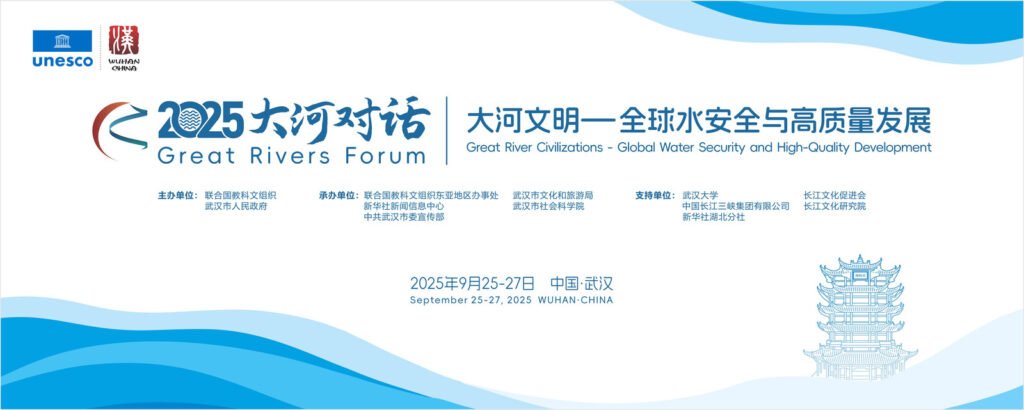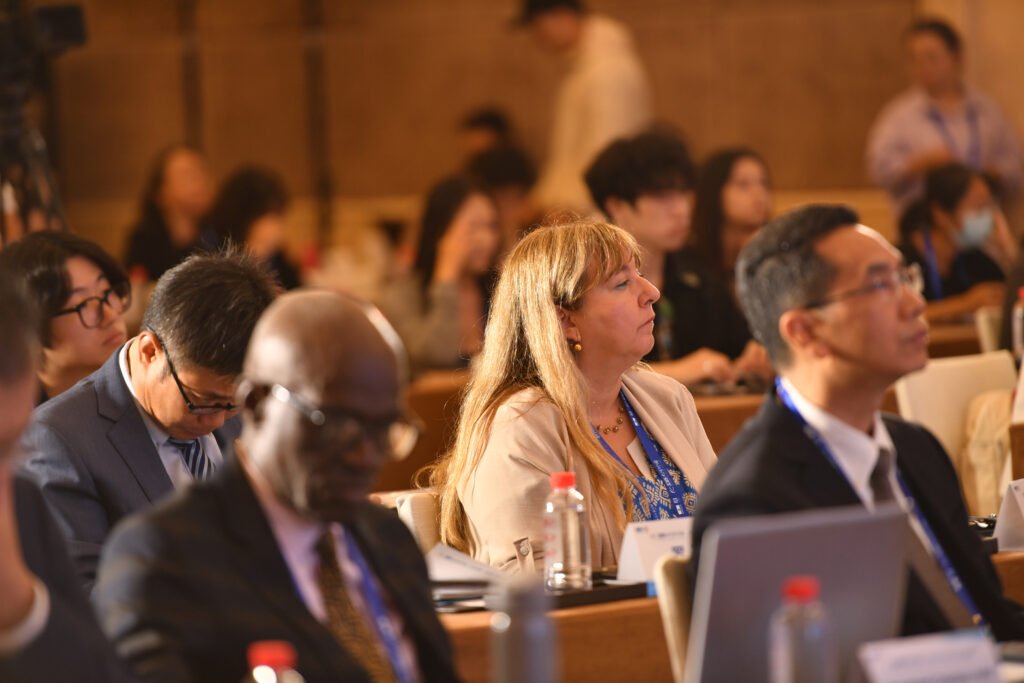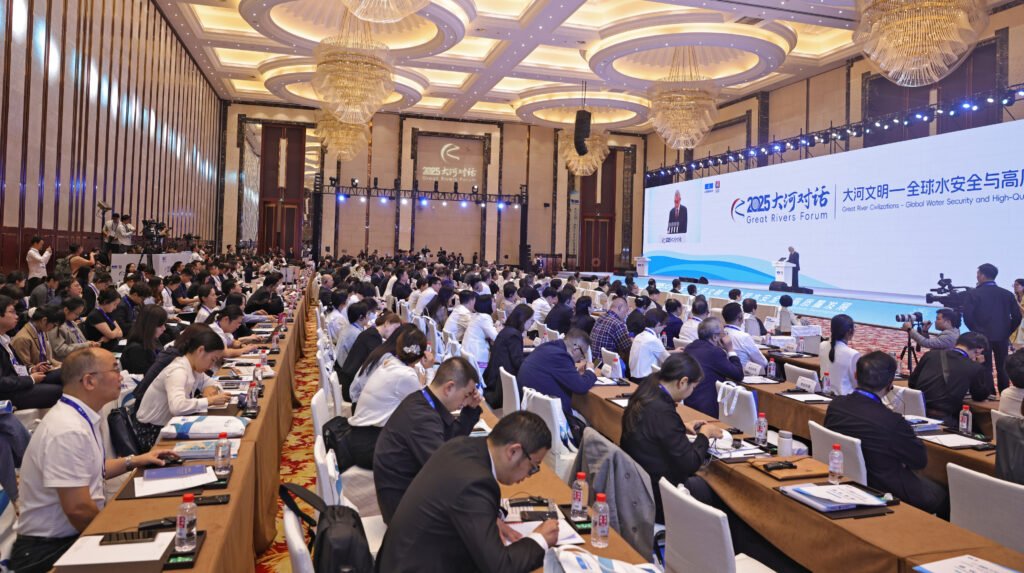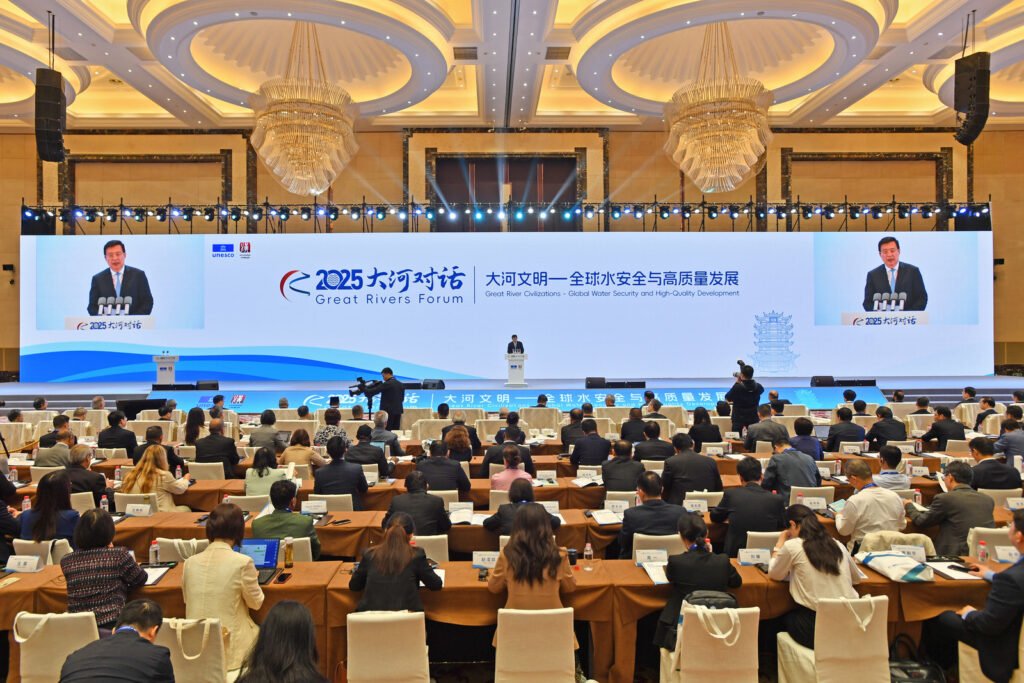The 2025 “Great River Dialogue,” which commenced on September 26 in Wuhan, China, aimed to foster international collaboration on sustainable development, ecological protection, and cultural exchange among major river cities. The forum underscored the critical role rivers play, not only as vital natural resources but also as symbols of cultural identity and historical continuity that have shaped human civilizations for millennia. A central theme of the discussions was China’s ongoing efforts to protect the Yangtze River, one of the world’s longest and most significant waterways. This initiative is closely aligned with President Xi Jinping’s vision for ecological civilization, emphasizing the integration of environmental protection with sustainable economic growth.

Participants explored practical solutions to water governance, technological innovations, and strategies for enhancing resilience against climate change and urbanization, particularly in riverine regions. The forum’s discussions reflected a global perspective on the challenges of managing large river systems while preserving their ecological integrity and supporting socio-economic development.
Widespread Participation and Global Engagement
The forum attracted significant international participation, drawing over 300 delegates from more than 30 countries. Representatives included government officials, water resource experts, urban planners, and cultural ambassadors from prominent river cities across the globe. Among the notable attendees were delegations from cities situated along iconic rivers such as the Nile (Egypt), the Amazon (Brazil), the Danube (Europe), the Mississippi (United States), the Ganges (India), and the Rhine (Germany). This diverse gathering emphasized the shared challenges faced by riverine communities worldwide and highlighted their collective commitment to tackling issues of water security, ecological preservation, and sustainable development.

“To Govern a Country Well, One Must First Control the Waters”
Since the 18th National Congress of the Communist Party of China, General Secretary Xi Jinping has formulated a comprehensive, long-term strategy for the protection of the Yangtze River and the high-quality development of the Yangtze River Economic Belt. His vision focuses on harmonizing environmental protection with socio-economic development. As a result, the Yangtze River has undergone a historic transformation, with its clear waters now contributing to the well-being of millions, and the region witnessing remarkable improvements in both environmental conservation and socio-economic prosperity.
Swift Transition from Spontaneous Action to Conscious Governance
Since the launch of the Yangtze River Protection Initiative, China has made considerable progress in shifting from reactive, spontaneous actions to a more structured and conscious governance model. Provincial governments, municipalities, and relevant departments have adopted a coordinated approach, fully aligned with the ecological integrity and systemic nature of the Yangtze River Basin. This marks a significant milestone in the country’s ongoing efforts to safeguard one of its most crucial water resources.
In recent years, the legal framework surrounding the Yangtze River’s protection has evolved substantially, with law enforcement becoming a central pillar of the country’s environmental governance. China’s first basin-specific legislation, the Yangtze River Protection Law, is now fully implemented, providing clear guidelines for the management and conservation of the river and its ecosystems. The law stresses integrated management across all regions of the basin, ensuring a more holistic and sustainable approach to environmental governance. Additionally, the Measures for the Joint Dispatch of Key Water Projects in the Yangtze River Basin (Trial) have been officially issued to enhance coordination among different regions. These measures reinforce the broader environmental goals of the Yangtze River Protection Initiative and highlight China’s commitment to long-term ecological sustainability.

Collaborative Efforts for Sustainable Development
The 2025 Great Rivers Forum also highlighted the collaborative efforts of governments, academic institutions, and the media in fostering a culture of sustainable development. The gathering provided an invaluable platform for the exchange of ideas, research, and innovations, strengthening international partnerships and promoting mutual learning. This is not just about facilitating dialogue but also about creating lasting change by embedding sustainable development within governmental agendas. The forum’s success reinforced the idea that addressing global water security challenges requires coordinated, multi-stakeholder efforts that integrate legal, technological, and cultural perspectives.
Visit to the Institute of Hydrobiology (IHB), Chinese Academy of Sciences
Following the forum, we visited the Institute of Hydrobiology (IHB) in Wuhan, an institution affiliated with the Chinese Academy of Sciences. Established in 1930 as part of the National Research Institute of Zoology and Botany and relocated to Wuhan in 1954, IHB has evolved into a leading research center on China’s inland water ecosystems. Strategically situated on the shores of East Lake, the Institute carries a national mission of protecting aquatic ecosystems and ensuring the sustainable use of biological resources. Its research scope spans water quality improvement, freshwater fisheries, and microalgae biotechnology, supported by six major research centers and the State Key Laboratory of Freshwater Ecology and Biotechnology.
With 343 staff members, including five CAS academicians, IHB combines strong human resources with advanced infrastructure. Among its key facilities are an analysis and testing center, a freshwater fish museum, and the Baiji Dolphinarium, dedicated to the conservation of endangered species such as the Yangtze River dolphin. Alongside its cutting-edge research, the Institute contributes to talent development through five doctoral and six master’s programs, consistently ranking among China’s top institutions in the natural sciences.
Dolphinarium, Institute of Hydrobiology (Wuhan, 27 Sept 2025)





